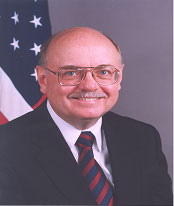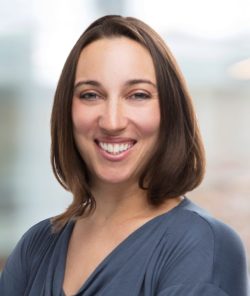The Democratic Republic of Congo Election and the “Good Enough” Election Syndrome in Africa
March 7th, 2019 12:00PM -1:30PM
Recent presidential elections in the Democratic Republic of the Congo (DRC) were a clear rebuke of outgoing president Joseph Kabila, but there is widespread concern that the announced results do not reflect the will of the Congolese people. While the United States and others called for a transparent process to resolve the dispute, the international community has ultimately accepted what is being called an “electoral coup” by Martin Fayalu, who officially lost despite likely getting the most votes. With active conflict in several parts of the country, an Ebola epidemic in the country’s volatile east, and a legacy of institutionalized corruption, the new president must now establish credibility with Congolese citizens and DRC’s partners. The election outcome—the first peaceful transfer of power in the DRC since independence—represents both promise and peril for the African nation. Join the World Affairs Council for a lunch discussion with Roger Meece, former U.S. Ambassador to DRC and head of the UN’s MONUSCO mission, and Colin Thomas-Jensen, former Africa Policy Advisor to the U.S. Ambassador to the United Nations Samantha Power. Jamaica Corker, Program Officer for Data & Evaluation in the Family Planning program at the Bill & Melinda Gates Foundation, will moderate the conversation.
Lunch is provided.
About the Speakers

Ambassador Roger A. Meece arrived in Kinshasa on July 24, 2004 to assume his position as U.S. Ambassador to the Democratic Republic of the Congo. He presented his credentials to President Joseph Kabila on August 3.
Immediately after receiving a Bachelor of Science degree from Michigan State University in 1971, Ambassador Meece became a Peace Corps Volunteer in Sierra Leone. This led to several Peace Corps staff assignments, including service as Associate Director for the Peace Corps in Niger and Cameroon, Deputy Director for the Peace Corps in the Republic of the Congo (Brazzaville) and as Director of the Peace Corps in Gabon.
His work in the Peace Corps inspired Ambassador Meece to join the Foreign Service in 1979. Ambassador Meece served at the U.S. Embassies in Cameroon and Malawi. He then returned to Washington to work in the Bureau of International Narcotics Matters and was subsequently detailed to the Office of the Vice-President of the United States. Ambassador Meece then served as Deputy Chief of Mission in the Republic of the Congo (Brazzaville), Consul-General in Halifax, Canada; and Deputy Chief of Mission in the Democratic Republic of the Congo from 1995-1998.
From 1998-2000, Ambassador Meece served as Director for Central African Affairs at the State Department. He then was appointed as the U.S. Ambassador to Malawi from 2000-2003. In 2003, Ambassador Meece was named as Diplomat in Residence at Florida International University. During this time, Ambassador Meece was also called upon to serve as the Chargè d'affaires at the U.S. Embassy in Nigeria for several months.
Ambassador Meece speaks French. He was born in Indianapolis, Indiana in 1949 and is a long-time resident of Seattle, Washington.

Colin Thomas-Jensen is an independent consultant and a Senior Advisor at WestExec Advisors. He is a former Africa Policy Advisor to the U.S. Ambassador to the United Nations and Deputy Director of the U.S. Mission to the United Nations’ Washington, DC Office.
From 2013 to 2017, Colin served as senior policy advisor to US Ambassador to the United Nations Samantha Power, and as deputy director of the US Mission to the United Nations’ Washington, DC office. From 2010 to 2012, he worked at the US Department of State as the special advisor to the US Special Envoy for Sudan and South Sudan. Earlier in his career, Colin worked in the Office of US Foreign Disaster Assistance at USAID, including as a humanitarian responder in Darfur, Sudan in 2004 and in Haiti following the 2010 earthquake.
Colin has held senior research and policy positions with the Center for American Progress, where he helped found the Enough Project, and at the International Crisis Group. In 2017 and 2018, he was a member of the U.N. Panel of Experts for South Sudan. His research and analysis has appeared in Foreign Affairs, Foreign Policy, Current History, the Christian Science Monitor, the Boston Globe, and the Yale Journal of International Affairs.
Colin served as a Peace Corps Volunteer in Ethiopia and Mozambique, and has traveled extensively throughout Africa. He is a graduate of Pomona College and has an MA in African Studies from the University of London’s School for Oriental and African Studies. He lives in Seattle with his wife and their two daughters.
About the Moderator
 Jamaica Corker is a Program Officer for Data & Evaluation in the Family Planning program at the Bill & Melinda Gates Foundation. A demographer with broad experience in international population dynamics research, her research and publications focus on migration and urbanization, fertility in sub-Saharan Africa, and linking demography and geographic information systems (GIS). She first became interested in international population issues while researching the one-child policy in China as an undergraduate at McGill University and through her work with child and maternal health in a rural clinic as a Peace Corps Volunteer in Guinea. She has since worked extensively in health and family planning program implementation in sub-Saharan Africa, including several years in the Democratic Republic of Congo with the NGO Population Services International (PSI) and as part of the West African Ebola response in 2014-15. She holds a Master’s degree from the London School of Economics and PhD in Demography from the University of Pennsylvania. Born and raised in Seattle, she is delighted to have returned to her hometown to work in a capacity that connects her to the international community.
Jamaica Corker is a Program Officer for Data & Evaluation in the Family Planning program at the Bill & Melinda Gates Foundation. A demographer with broad experience in international population dynamics research, her research and publications focus on migration and urbanization, fertility in sub-Saharan Africa, and linking demography and geographic information systems (GIS). She first became interested in international population issues while researching the one-child policy in China as an undergraduate at McGill University and through her work with child and maternal health in a rural clinic as a Peace Corps Volunteer in Guinea. She has since worked extensively in health and family planning program implementation in sub-Saharan Africa, including several years in the Democratic Republic of Congo with the NGO Population Services International (PSI) and as part of the West African Ebola response in 2014-15. She holds a Master’s degree from the London School of Economics and PhD in Demography from the University of Pennsylvania. Born and raised in Seattle, she is delighted to have returned to her hometown to work in a capacity that connects her to the international community.